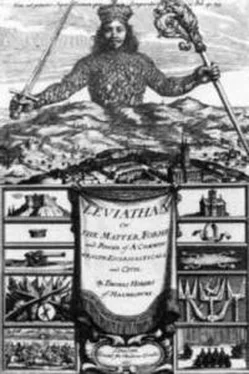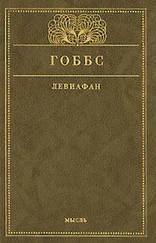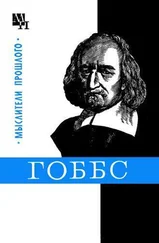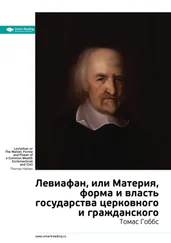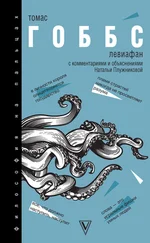First, where the Levites fell upon the People, that had made and worshipped the Golden Calfe, and slew three thousand of them; it was by the Commandement of Moses, from the mouth of God; as is manifest, Exod. 32.27. And when the Son of a woman of Israel had blasphemed God, they that heard it, did not kill him, but brought him before Moses, who put him under custody, till God should give Sentence against him; as appears, Levit. 25.11, 12. Again, (Numbers 25.6, 7.) when Phinehas killed Zimri and Cosbi, it was not by right of Private Zeale: Their Crime was committed in the sight of the Assembly; there needed no Witnesse; the Law was known, and he the heir apparent to the Soveraignty; and which is the principall point, the Lawfulnesse of his Act depended wholly upon a subsequent Ratification by Moses, whereof he had no cause to doubt. And this Presumption of a future Ratification, is sometimes necessary to the safety [of] a Common–wealth; as in a sudden Rebellion, any man that can suppresse it by his own Power in the Countrey where it begins, may lawfully doe it, and provide to have it Ratified, or Pardoned, whilest it is in doing, or after it is done. Also Numb. 35.30. it is expressely said, "Whosoever shall kill the Murtherer, shall kill him upon the word of Witnesses:" but Witnesses suppose a formall Judicature, and consequently condemn that pretence of Jus Zelotarum. The Law of Moses concerning him that enticeth to Idolatry, (that is to say, in the Kingdome of God to a renouncing of his Allegiance) (Deut. 13.8.) forbids to conceal him, and commands the Accuser to cause him to be put to death, and to cast the first stone at him; but not to kill him before he be Condemned. And (Deut. 17. ver.4, 5, 6.) the Processe against Idolatry is exactly set down: For God there speaketh to the People, as Judge, and commandeth them, when a man is Accused of Idolatry, to Enquire diligently of the Fact, and finding it true, then to Stone him; but still the hand of the Witnesse throweth the first stone. This is not Private Zeal, but Publique Condemnation. In like manner when a Father hath a rebellious Son, the Law is (Deut. 21. 18.) that he shall bring him before the Judges of the Town, and all the people of the Town shall Stone him. Lastly, by pretence of these Laws it was, that St. Steven was Stoned, and not by pretence of Private Zeal: for before hee was carried away to Execution, he had Pleaded his Cause before the High Priest. There is nothing in all this, nor in any other part of the Bible, to countenance Executions by Private Zeal; which being oftentimes but a conjunction of Ignorance and Passion, is against both the Justice and Peace of a Common–wealth.
In the 36th Chapter I have said, that it is not declared in what manner God spake supernaturally to Moses: Not that he spake not to him sometimes by Dreams and Visions, and by a supernaturall Voice, as to other Prophets: For the manner how he spake unto him from the Mercy–seat, is expressely set down (Numbers 7.89.) in these words, "From that time forward, when Moses entred into the Tabernacle of the Congregation to speak with God, he heard a Voice which spake unto him from over the Mercy–Seate, which is over the Arke of the Testimony, from between the Cherubins he spake unto him." But it is not declared in what consisted the praeeminence of the manner of Gods speaking to Moses, above that of his speaking to other Prophets, as to Samuel, and to Abraham, to whom he also spake by a Voice, (that is, by Vision) Unlesse the difference consist in the cleernesse of the Vision. For Face to Face, and Mouth to Mouth, cannot be literally understood of the Infinitenesse, and Incomprehensibility of the Divine Nature.
And as to the whole Doctrine, I see not yet, but the principles of it are true and proper; and the Ratiocination solid. For I ground the Civill Right of Soveraigns, and both the Duty and Liberty of Subjects, upon the known naturall Inclinations of Mankind, and upon the Articles of the Law of Nature; of which no man, that pretends but reason enough to govern his private family, ought to be ignorant. And for the Power Ecclesiasticall of the same Soveraigns, I ground it on such Texts, as are both evident in themselves, and consonant to the Scope of the whole Scripture. And therefore am perswaded, that he that shall read it with a purpose onely to be informed, shall be informed by it. But for those that by Writing, or Publique Discourse, or by their eminent actions, have already engaged themselves to the maintaining of contrary opinions, they will not bee so easily satisfied. For in such cases, it is naturall for men, at one and the same time, both to proceed in reading, and to lose their attention, in the search of objections to that they had read before: Of which, in a time wherein the interests of men are changed (seeing much of that Doctrine, which serveth to the establishing of a new Government, must needs be contrary to that which conduced to the dissolution of the old,) there cannot choose but be very many.
In that part which treateth of a Christian Common–wealth, there are some new Doctrines, which, it may be, in a State where the contrary were already fully determined, were a fault for a Subject without leave to divulge, as being an usurpation of the place of a Teacher. But in this time, that men call not onely for Peace, but also for Truth, to offer such Doctrines as I think True, and that manifestly tend to Peace and Loyalty, to the consideration of those that are yet in deliberation, is no more, but to offer New Wine, to bee put into New Cask, that bothe may be preserved together. And I suppose, that then, when Novelty can breed no trouble, nor disorder in a State, men are not generally so much inclined to the reverence of Antiquity, as to preferre Ancient Errors, before New and well proved Truth.
There is nothing I distrust more than my Elocution; which neverthelesse I am confident (excepting the Mischances of the Presse) is not obscure. That I have neglected the Ornament of quoting ancient Poets, Orators, and Philosophers, contrary to the custome of late time, (whether I have done well or ill in it,) proceedeth from my judgment, grounded on many reasons. For first, all Truth of Doctrine dependeth either upon Reason, or upon Scripture; both which give credit to many, but never receive it from any Writer. Secondly, the matters in question are not of Fact, but of Right, wherein there is no place for Witnesses. There is scarce any of those old Writers, that contradicteth not sometimes both himself, and others; which makes their Testimonies insufficient. Fourthly, such Opinions as are taken onely upon Credit of Antiquity, are not intrinsically the Judgment of those that cite them, but Words that passe (like gaping) from mouth to mouth. Fiftly, it is many times with a fraudulent Designe that men stick their corrupt Doctrine with the Cloves of other mens Wit. Sixtly, I find not that the Ancients they cite, took it for an Ornament, to doe the like with those that wrote before them. Seventhly, it is an argument of Indigestion, when Greek and Latine Sentences unchewed come up again, as they use to doe, unchanged. Lastly, though I reverence those men of Ancient time, that either have written Truth perspicuously, or set us in a better way to find it out our selves; yet to the Antiquity it self I think nothing due: For if we will reverence the Age, the Present is the Oldest. If the Antiquity of the Writer, I am not sure, that generally they to whom such honor is given, were more Ancient when they wrote, than I am that am Writing: But if it bee well considered, the praise of Ancient Authors, proceeds not from the reverence of the Dead, but from the competition, and mutuall envy of the Living.
To conclude, there is nothing in this whole Discourse, nor in that I writ before of the same Subject in Latine, as far as I can perceive, contrary either to the Word of God, or to good Manners; or to the disturbance of the Publique Tranquillity. Therefore I think it may be profitably printed, and more profitably taught in the Universities, in case they also think so, to whom the judgment of the same belongeth. For seeing the Universities are the Fountains of Civill, and Morall Doctrine, from whence the Preachers, and the Gentry, drawing such water as they find, use to sprinkle the same (both from the Pulpit, and in their Conversation) upon the People, there ought certainly to be great care taken, to have it pure, both from the Venime of Heathen Politicians, and from the Incantation of Deceiving Spirits. And by that means the most men, knowing their Duties, will be the less subject to serve the Ambition of a few discontented persons, in their purposes against the State; and be the lesse grieved with the Contributions necessary for their Peace, and Defence; and the Governours themselves have the lesse cause, to maintain at the Common charge any greater Army, than is necessary to make good the Publique Liberty, against the Invasions and Encroachments of forraign Enemies.
Читать дальше
Конец ознакомительного отрывка
Купить книгу
